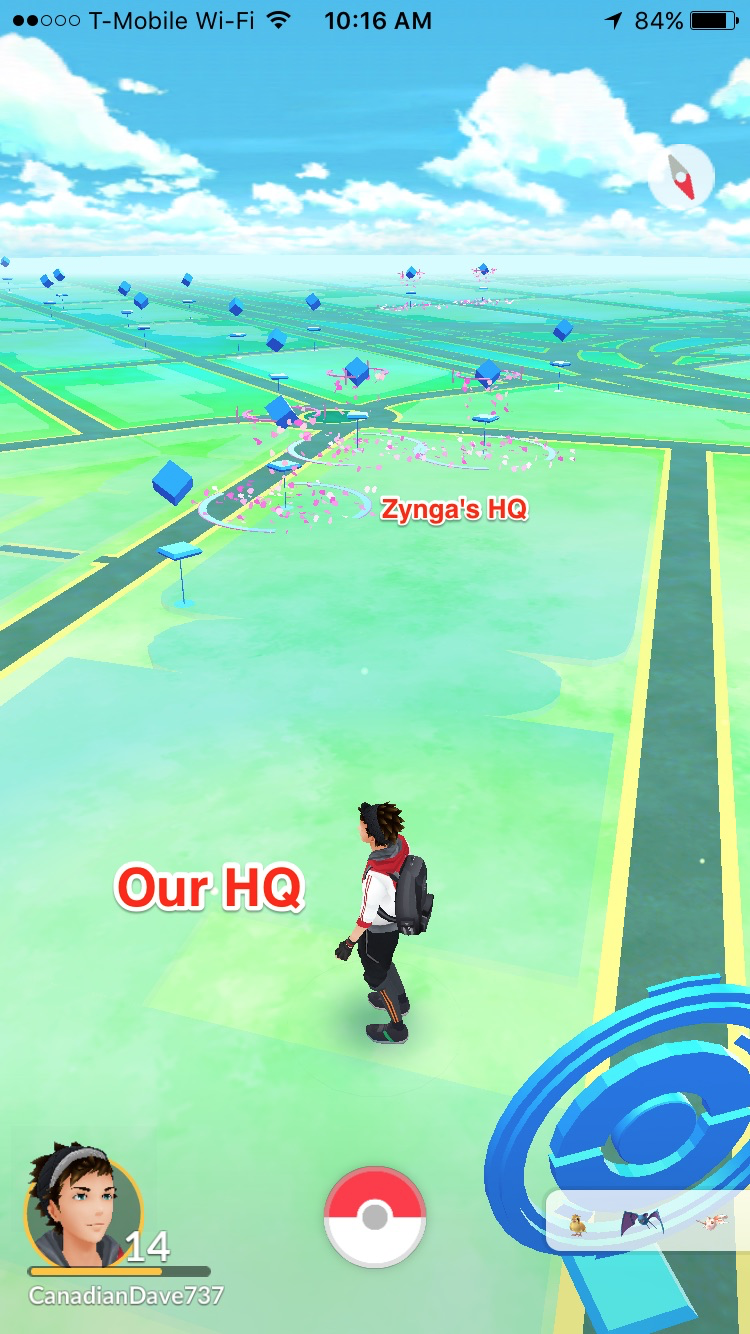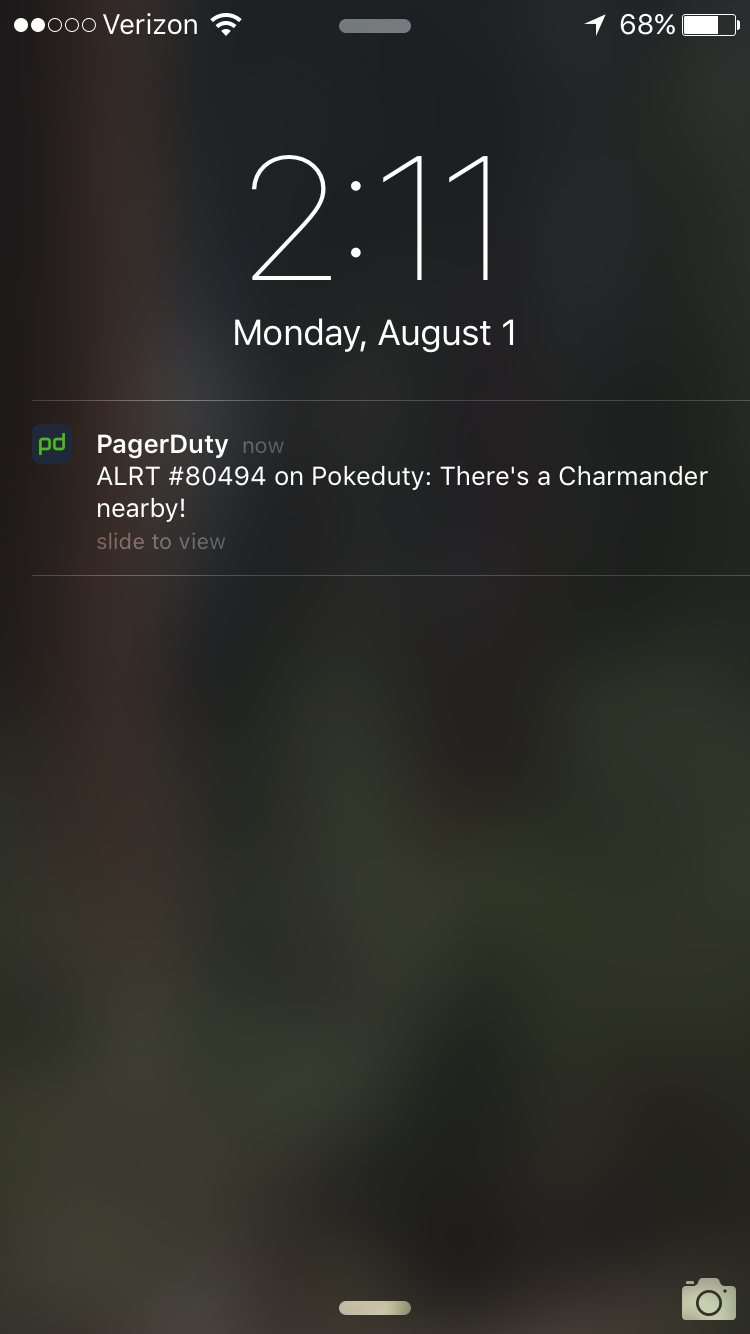- PagerDuty /
- Blog /
- Uncategorized /
- Know When to Go for Pokémon Go
Blog
Know When to Go for Pokémon Go
Everything has an API
 Like with many others, Pokémon Go™ has captured our attention and imagination at PagerDuty. But there are only so many Pidgeys, Rattatas and Doduos a person needs and our San Francisco office neighbors at Zynga and Adobe have been pretty fierce competition.
Like with many others, Pokémon Go™ has captured our attention and imagination at PagerDuty. But there are only so many Pidgeys, Rattatas and Doduos a person needs and our San Francisco office neighbors at Zynga and Adobe have been pretty fierce competition.
In the spirit of competition, and providing others with the insight to know when to go for the Pokémon they need, we’ve been using an internal tool to ping us when there’s a particular Pokémon nearby. It’s kind of like leaving the app open at all times so you can see what’s nearby.
Our tool — called PokeDuty — alerts you when there’s a specific Pokémon nearby via your PagerDuty account. The goal is to time your Pokémon Go breaks while still carrying on with normal life, yet keeping the spirit of the game alive since it remains location based.
Here’s how it works:
- Add PokeDuty to your add-ons in your PagerDuty account by setting up a PagerDuty generic API service for each location you tend to spend a lot of time at (e.g. home, work, the gym, etc.)
- Use Support Hours on those services to only alert during the times of day you’re in that location
- Register your locations along with the Pokémon you’re looking for at https://pokeduty.herokuapp.com/
 Like with our other integrations, PokeDuty helps enrich and aggregate events (in this case, the Pokémon you are after) into actionable alerts. Unlike our other integrations though, this isn’t PagerDuty supported and neither are the APIs we hit — so it may be down more than it’s up. It’s still far better than leaving the “nearby” screen on in the app, and we’ve found it doesn’t ruin the fun of the game.
Like with our other integrations, PokeDuty helps enrich and aggregate events (in this case, the Pokémon you are after) into actionable alerts. Unlike our other integrations though, this isn’t PagerDuty supported and neither are the APIs we hit — so it may be down more than it’s up. It’s still far better than leaving the “nearby” screen on in the app, and we’ve found it doesn’t ruin the fun of the game.
Although I didn’t get a chance to write any of the code (it appeared while I was in meetings), it’s amazing how fast SaaS tools can be prototyped. This is another example of something we’ve been on the receiving end of at PagerDuty: if you are on the Web, you have an API.
As for us, the first time we found out we had an API we hadn’t authored ourselves was four years ago when Github published their own implementation of PagerDuty webhooks that polled the incidents page (we formally released webhooks shortly afterwards). It continues to this day, as our internal Hack Days routinely sneak ahead of our published API by sniffing traffic before APIs are finalized and formalized. We’re also lucky that our customers have used our API for genuinely good things; we’ve seen everything from rainforest management to chatbot scripts. In 2016 so far, API calls from our customers’ and partners’ scripts represent 70% of all traffic at PagerDuty, far more than manual users, though it varies by API. That’s the amazing thing about APIs as software eats the world — they have a life of their own.
*All product and company names herein may be trademarks of their registered owners.


